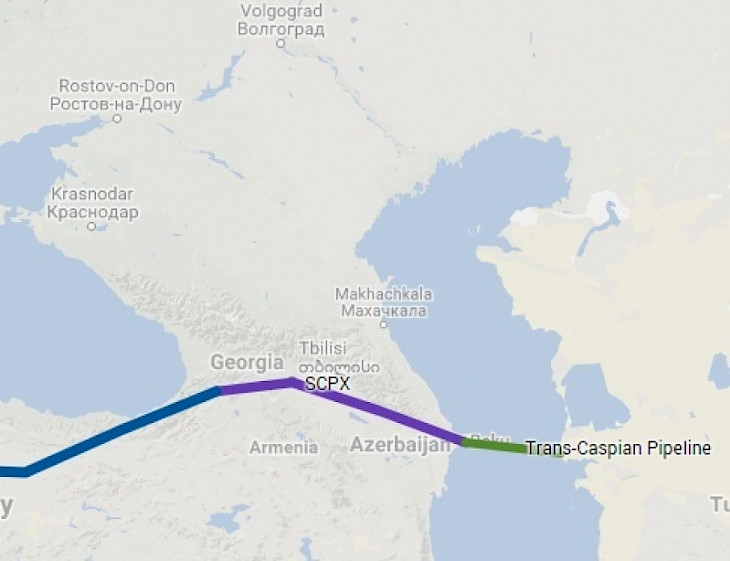Turkmenistan does not see any factors hindering the construction of the Trans-Caspian gas pipeline along the bottom of the Caspian Sea, through which it is planned to supply Turkmen gas to the European Union. This was reported by the Ministry of Foreign Affairs of Turkmenistan.
"Turkmenistan is convinced that there are no political, economic, financial factors hindering the construction of the gas pipeline. On the contrary, the Trans-Caspian pipeline is an absolutely realistic project, justified from an economic point of view, capable of making a tangible contribution to ensuring energy security in Eurasia, providing long-term and uninterrupted access to sources of raw materials for European consumers, while observing the obvious benefits and interests of the transit side. Based on this, Turkmenistan, being committed to the strategy of diversifying energy flows, expresses its readiness to continue cooperation with partners in the implementation of June of the Trans-Caspian pipeline project," the Turkmen Foreign Ministry said in a statement.
The Foreign Ministry also noted that comments began to appear in the international media regarding the possibility of implementing a project for the supply of Turkmen natural gas in the western direction. In particular, on July 21, 2023, Azerbaijani President Ilham Aliyev said at a media forum in the city of Shusha that the Trans-Caspian gas pipeline project "is not for us to initiate, it is not for us to invest in it", noting that his country can provide infrastructure for it or territory for creating infrastructure.
In this regard, the Ministry of Foreign Affairs recalled that the idea of building a Trans-Caspian gas pipeline, initiated by Turkmenistan, was initially considered by the country not only as an economically and commercially viable project, but also as an essential part of the diversification of energy flows as a key condition for global energy security and sustainability based on equal consideration of the interests and benefits of producers, consumers and transit countries.
"With which, by the way, all potential participants in the project agree. <...> In general, cooperation on the construction of the Trans-Caspian pipeline has progressed consistently and practically, receiving political and functional international support. The international legal validity of the project is also beyond doubt after the adoption in 2018 by the five coastal states of the fundamental document regulating the key principles of policy in the Caspian - the Convention on the Legal Status of the Caspian Sea," the Foreign Ministry notes.
In particular, the agency cites Article 14 of this document, which states that the parties may lay cables and pipelines along the bottom of the Caspian Sea, and the determination of the route for laying submarine cables and pipelines is carried out in agreement with the party through the sector of the bottom of which the submarine cable or pipeline should be laid. "Thus, today the construction of the Trans-Caspian pipeline is directly related to the delimitation of the bottom between Turkmenistan and the Republic of Azerbaijan," the Foreign Ministry concludes.
About the project
Ashgabat and Baku have been considering the possibility of laying a gas pipeline along the bottom of the Caspian Sea from the coast of Turkmenistan to Azerbaijan for a long time. The Convention on the Legal Status of the Caspian Sea stipulates that such projects should only be agreed between the countries through whose territorial waters the pipeline will pass. After the signing of the convention, a number of media reported that the agreement gave the green light to the implementation of the project, which provides for the supply of Turkmen gas to the European market in the amount of 30 billion cubic meters. m annually for at least 30 years.
So far, transit pipelines through the territory of Kazakhstan and Russia remain the only ways to supply Turkmen gas to the West.
CentralasianLIGHT.org
July 25, 2023

